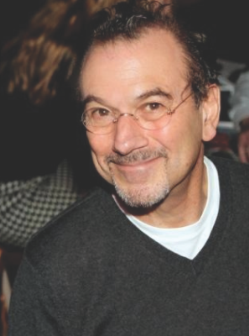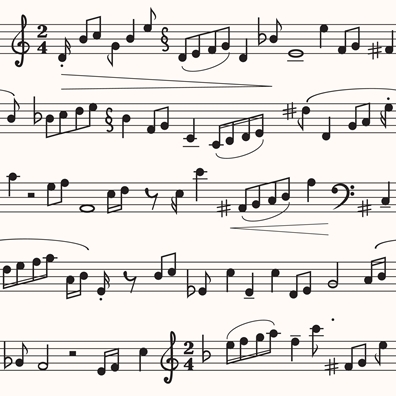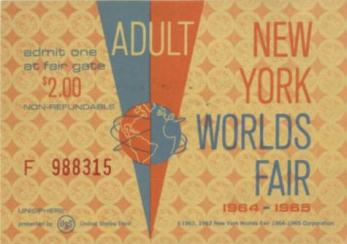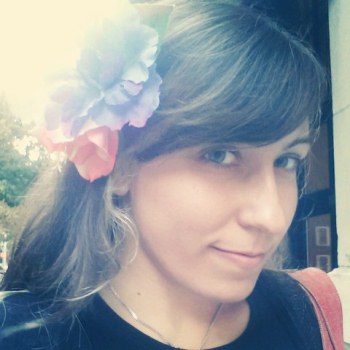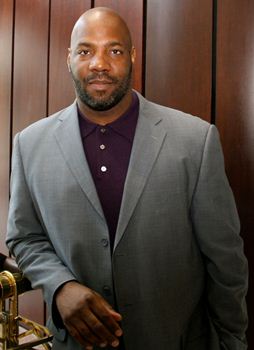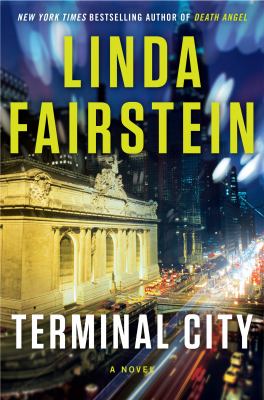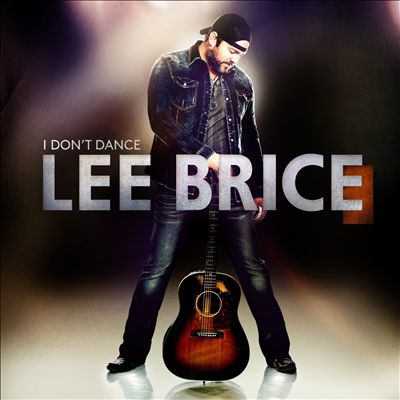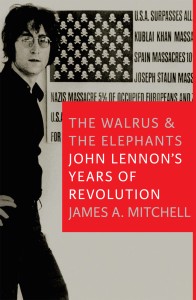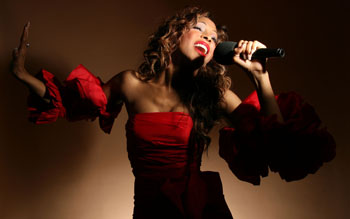Born and raised in Los Angeles, record producer Russ Titelman started off working with Phil Spector, Gerry Goffin & Carole King, and Barry Mann & Cyntia Weil. He was a contract producer at Warner Brothers Records for 25 years and worked with, among others, Randy Newman, Ry Cooder, James Taylor, George Harrison, Rickie Lee Jones, Chaka Khan, Paul Simon, Miriam Makeba, Steve Winwood, and Eric Clapton. In fact, many feel that Titelman’s contributions to Eric Clapton’s albums Journeyman, 24 Nights, Unplugged and From The Cradle were crucial to Clapton’s renaissance.
We were very pleased to speak with Russ Titelman before his lecture on April 4 at the Central Library and hear his quick thoughts on his nearly five decades playing, writing and producing music.
You’ve won three Grammy Awards for producing. Can you tell us a little about each win?
Our first Grammy win was Record of the Year for Steve Winwood's “Higher Love” (1986). I had a feeling that we would win, but the competition was so steep that it came as a surprise. That record was extremely complicated to make and it took a long time. A lot of technical work went into it because it's an amalgam of man and machine, about half and half. The trick was making it feel natural.
The second and third Grammys were for “Tears In Heaven” (1992’s Record of the Year) and Unplugged (1992’s Album of the Year) by Eric Clapton. “Tears in Heaven” was recorded for the film Rush and was on its soundtrack. Unplugged was done as a show and not for release on CD. Eric didn't feel comfortable releasing it but eventually agreed to do it after much cajoling from the record company. No one imagined it would become so enormous and beloved.
Which era of music has inspired you the most?
The era that inspired me the most was the music I heard in my youth...primarily doo wop, Louis Armstrong and Leadbelly. But I also loved Sinatra and Billie Holiday and the stuff that was on the radio then.
Do you have any special memories about working with George Harrison?
I had a great time working with George. He was a very excellent record maker, so my job was easy having him as a co-producer.
What was it like working with Eric Clapton?
Working with Eric was an amazing experience. He's an incredible musician in every sense and extremely professional in the studio. The greatest rhythm guitarist I’ve ever heard. He's a great songwriter, a great singer and maybe the greatest guitar player that ever lived. When we first went in, I was extremely nervous, not knowing how he worked, so I overbooked musicians just in case. In addition to the core band, we had drum machine and two keyboard players, and Jerry Williams, who wrote five of the songs on Journeyman, was there on guitar and harmony vocals. It all fell into place.
What do you think about the mass digitalization of music? How has it affected the art of making an album?
Technology has definitely changed the way music is made. Now, one person can create a whole album in his living room on a computer. The community that supported the process of making records has pretty much disappeared. The studios, musicians, engineers and assistants, cartage companies, etc. have only a fraction of the work they once had. It's the thing I miss the most...a group of musicians playing together in a room, coming up with grooves and arrangements and fabulous accidents which sometimes made the record magical. Don't get me wrong, there is still good music being made — but the process is different and not as much fun.
What do you like best about producing records?
I suppose the thing I like best is making something wonderful from a simple song...breathing life into it.
Queens Library offers language-learning resources in 90+ languages via Transparent Language Online. Seasoned users and first-timers alike will be excited to hear that there’s a new Transparent Language Online in town, complete with a brand new interface, updated learning activities, better progress-tracking tools, more opportunities for personalization, expanded mobile access, and much more.
We're celebrating the new Transparent Language Online with the Worldwide Welcome Contest! What could possibly make learning a new language with brand new, cutting edge technology even better? Prizes, of course! If you sign up for the contest and complete the Welcome Lesson, you will be entered to win a grand prize of one $500 Amazon gift card or a secondary prize of one of five $100 Amazon gift cards! Feeling ambitious? Every language in which you complete the Welcome Lesson counts as a raffle entry.
Whether you’re competitive or just curious about the world, pick up a few words in another language or two! You can learn at the library, at home, or on the go with your tablet. The system’s new Welcome Lesson will help you do just that. Taking as little as 5 minutes to complete, it’s the perfect introduction to a new language. Not too tech savvy? Don’t worry! It’s also the perfect introduction to the new system, with instructional overlays guiding you through the new navigation and activities.
Swing by the library for more details, or sign up for a FREE Transparent Language Online account by clicking this link.
Composers, musicians and aficionados alike were disappointed to hear that the last classical sheet music store in New York City will be closing its doors after serving generations of performers.
While brick-and-mortar options for finding classical music scores have rapidly disappeared, Queens Library offers access to the largest free circulating collection of sheet music in New York City! Over 80,000 music scores spanning a variety of genres and time periods are available exclusively at the Central Library.
Customers can easily find music scores on the shelves at the Media Center. They include sheet music and lyrics to classical and modern songs; scores for opera, musicals and films; music for individual instruments such as piano, guitar, clarinet, saxophone, violin and more; and masterpieces by diverse composers from around the world, for voice or instruments, including the complete works of Bach, Beethoven, Chopin, Handel, Joplin, Liszt, Mendelssohn, Mozart, Rachmaninoff, Schonberg, Tchaikovsky and others.
“Our sheet music collection is a treasure for musicians in New York City, available free in Queens for all types and levels of music,” says Jane Montalto, the senior librarian who has managed the collection for more than two decades.
You can quickly search our collection on the Queens Library website by using the "Music Scores" option in the "All Categories" drop-down menu at the top right of any webpage.
Knowledgeable staff members are also available at the Central Library to help customers find the scores they need, including rare pieces of music. There are also books of music published prior to 1923 available online in the Library’s digital archives.
Scores can be checked out with a Queens Library Card for 21 days and renewed three times. They may also be reserved, interloaned, photocopied, faxed and returned to any Queens Library location.
For more information on our collection of sheet music, please contact the Central Library Media Center.
New York City has had the honor of hosting the World’s Fair three times — and two of them have been held in Flushing Meadows–Corona Park! Now, 50 years after our city’s last World’s Fair, a new project has been created to preserve their memory by talking with the people who were there.
Queens Memory (a collaboration of Queens Library and Queens College) has partnered with the Queens Museum to interview visitors who attended the 1939 or 1964 World’s Fairs.
The interviews are part of the Queens Museum’s visitor experience at their World’s Fair exhibits, which contain more than 10,000 pieces of memorabilia. The exhibits act as powerful triggers for the memories of many visitors, which are then recorded and archived by Queens Memory to share with the public. The Museum has also interviewed several donors of World’s Fair collectibles about the interesting stories behind their memorabilia.
This partnership has already produced several audio recordings which can be found on the Queens Memory website along with other historical materials.
This is just the latest partnership between Queens Library and the Queens Museum. We have collaborated on several educational programs in the past, and in 2016 the ground floor of the Museum will have its own Queens Library branch — the first circulating library housed in an art museum in the nation! We look forward to continuing the strong relationship between our two institutions for the benefit of our borough.
If you have personal memories of the 1939 or 1964 World’s Fairs that you would like to share, you can contact Queens Memory Project Director Natalie Milbrodt.
And be sure to join us at Queens Library's upcoming World's Fair-themed events, including a Queens Historical Society teleconference on the 1964 World's Fair and a program with more than 200 images of the 1939 and 1964 World’s Fairs at Queens Library at Douglaston/Little Neck.
A “proudly born-and-raised Queens writer, poet, curator, and arts crusader,” Audrey Dimola reflects
the boundless energy and diversity that is at the heart of her home borough. Audrey organized the first-ever Queens Literary Town Hall at the Queens Council on the Arts; has curated shows for the LaGuardia Performing Arts Center and the Queens Museum; and is the founder of the fireside reading/live writing series Nature of the Muse, which BORO Magazine called “one of the most exciting literary events in the city.” Her newest book, TRAVERSALS, was released on November 3.
Audrey is the featured reader at our Open Mic for Poets event on Sunday, January 11 at the Central Library. In this interview that originally appeared in the Winter 2015 issue of Enrich Your Life, Audrey shares her thoughts on creativity, Queens, and connecting with others.
As a Queens native, what role did the Library play in your life?
I have such fond memories of Queens Library growing up — walking to the Ravenswood branch with my mom and brother and staying for hours, then lugging bags and bags of books back home. I was so lucky to have my mom instill a great love of reading in me when I was so young.
Tell us about your new book, and your approach to writing.
My approach to writing is always both visceral and mystical — it emerges from a raw feeling of necessity, oftentimes tumbling out as if it was rushing in from somewhere else. TRAVERSALS is my second collection of poetry and prose — it chronicles what gets left behind and how we honor what we have experienced. Ultimately, it’s about trusting the journey and the resiliency of the human heart.
Can you talk about the artistic and literary community here in Queens?
Queens has always had such a vibrant history, no doubt thanks in part to its incredible multiculturalism, but the borough is so widespread that often we are creating culture totally unbeknownst to each other! Thankfully, the change I’ve seen in recent times is an emphasis on interconnectedness. In the past few years alone, I’ve seen so much more activity in terms of literary events happening from Jamaica to Kew Gardens. All it takes is people willing to DO IT, to reach out to each other and make it happen.
Can you give other independent authors any advice on how to get their work noticed?
For me, what it comes down to is: don’t only think of yourself. Go to readings and open mics but DON’T just go to perform — go to watch and make connections. Being around a community of artists helps you to break out of your own shell — to experience what others are doing and, most importantly, to have SUPPORT. Above all, just be YOU. It’s easier than ever nowadays to get your work out there, so come with energy and enthusiasm, and don’t be afraid to ask questions or take chances — tweet to a reporter, go up to someone new at an event, send a random email!
What advice do you have for young authors, or writers who are just getting started?
My advice is to trust the process. I’ve been writing for as long as I can remember, but that doesn’t mean it’s always been easy. Just recognize the ebb and flow. Don’t throw out your pages when you think they’re awful, don’t let anyone fool you into thinking that you have to write a certain way or know all the “greats,” and don’t listen to the gatekeepers who keep telling you how, because at the heart of you, YOU know how. Dive into the wealth of literature in the world. Whether you are rejected or accepted to a journal, whether you are performing to a packed house or to a few filled seats — do your best, make it all count, and of course: ENJOY IT.
Tags
UPDATE: Don't miss our upcoming evening of conversation with Jelani Cobb, Breaking the Line: A Parable of Race and Education in Queens, NY, on Tuesday, November 24, 2015, from 6:00 to 8:00 p.m., at Manducatis Rustica, 46-35 Vernon Boulevard in Long Island City.
Jelani Cobb is an Associate Professor of History and Director of the Africana Studies Institute at the University of Connecticut. He is the author of The Substance of Hope: Barack Obama & the Paradox of Progress and To The Break of Dawn: A Freestyle on the Hip Hop Aesthetic.
Professor Cobb is no stranger to the Queens Library community; he’s joined us in the past for author events and he will again in February 2015. He also promoted our recent “Giving Week” event to his followers on Twitter, encouraging people to join him in supporting Queens Library. He was gracious enough to talk with us about his early experiences with the Library, his books, and the heated events of this past summer.
You recently asked your Twitter followers when they got their first library cards. You got yours at the community library in South Hollis. How important was Queens Library to you growing up?
After school one day, when I was in the fourth grade, my mother picked me up and we stopped at the library on the way home. We were living in Hollis, Queens at the time and the local library was four blocks away from our house. She walked me in and then sent me up to the desk to ask for an application for a library card. I remember it very vividly, even her urging me to speak up so the librarian could hear my request. I had no idea how essential that building would become both to my childhood and to a great deal of what I've done since then. I lost myself in volumes of Greek mythology, science books, fiction — every one of the Encyclopedia Brown books I could get my hands on — without ever considering that I might grow up and write books of my own one day. The South Hollis library was pretty much a cornerstone.
What do you think are the best ways that people can support their local libraries?
It would be great if everyone took a moment and gave something, however small, to the branch where they received their first library card. I didn't know until very recently that the experience of getting that card is so emotionally resonant for so many people — it's often the first document a child possesses with their name on it. It's also great to see people volunteer for workshops or events based upon what they do professionally and contribute the skills that libraries helped them develop.
Your book To the Break of Dawn explored the aesthetic qualities of hip hop and traced its origins back to other forms of black expression. What sources did you use for your research?
When I started my book on hip hop, I first delved into the blues because I was interested in understanding the relationship between the two genres. I explored a wonderful concordance of blues lyrics that I came across in the library of Spelman College (where I was teaching at the time), audio recordings of early blues songs, a ton of music reviews, and some interviews as well. Research is work but it doesn't feel like it, and I often had to remind myself that I was trying to complete a book, not just reading lots of things I found interesting.
You travelled to Ferguson after Michael Brown was killed and also after the recent grand jury decision to not indict police officer Darren Wilson. Can you talk about your experiences there? What do you think about the related wave of political protests stretching from New York City to the West Coast and even Delhi, India?
Being in Ferguson was a confluence of sorts. I teach history and I'm often trying to convey to students its immediate relevance to the present — but in Ferguson I could see, very clearly, the way that fraught relationship between the police and black communities has survived history and become part of the present. I believe that the people in power in Ferguson and far beyond tended to think this was about the forensic details of a specific shooting by a particular police officer on a given day. The people in the streets understood the events in Ferguson contextually, as part of a much bigger narrative about whose lives matter and deeper questions that really couldn't be dispelled by a ballistic report or an autopsy. And given that this occurred not very long after the Trayvon Martin incident, it resonated in a way that it might not have otherwise.
Your book The Substance of Hope came out 18 months into President Obama’s first term. Can you talk about your observations then and if/how they’ve changed now that we’re nearing the end of his presidency?
The Substance of Hope was my attempt to make sense of a question that thrilled, vexed, and fascinated us throughout 2008 — specifically, how it was possible for the term "black President" to move so quickly from nearly oxymoronic to an actual political reality, and at a time when race continues to bedevil the social and economic realities of this country. It was easy at that point to engage Obama as metaphor in a way that you couldn’t do even one year into his presidency, much less now, halfway through his second term. I think he's governed domestically with a degree of cautious pragmatism that people didn't anticipate in 2008, but being a historian I know better than to draw too firm a conclusion about that before the dust has entirely settled.
What’s the most recent book you’ve read and who are some of your favorite writers?
I'm currently reading the Modern Library's collected essays of Joan Didion. Her work has a staggering clarity and a subtlety of observation that is rare and compelling. A lot of times, people think of the essay as an informative genre and that poetry and fiction place more emphasis upon aesthetic qualities; I find myself drawn to nonfiction writers who dispel that notion. Didion, James Baldwin, Tony Judt, and Amiri Baraka are some of my favorites.
What advice would you give to aspiring writers and journalists?
Attentive reading and diligent note-taking are the best tools I know for aspiring writers. The most important thing I've learned about writing is the importance of reading, not simply as an exercise in gaining knowledge — though that is crucial — but also for the practice of taking something apart to see why and how it works. When I first started writing, I amassed a huge file of clippings, full of writing that I thought was great in some way — and I would read and re-read them until I could understand what the writer had done, and what distinguished that piece of writing from something average or forgettable.
Born and raised in Queens, Jelani Cobb was educated at Jamaica High School, Howard University in Washington, D.C., and Rutgers University, where he received his doctorate in American History. His forthcoming book is titled Antidote to Revolution: African American Anticommunism and the Struggle for Civil Rights, 1931-1957. His articles and essays have appeared in The New Yorker, The Daily Beast, The Washington Post, Essence, Vibe, The Progressive, and TheRoot.com. He has also been a featured commentator on MSNBC, National Public Radio, CNN, Al-Jazeera, CBS News, and other national broadcast outlets.
When you’re looking for a great gift book, who else would you ask but a librarian? Here are some holiday suggestions from our dedicated library staff.
And remember — you can buy these books and other holiday gifts at great prices at Queens Library's online store and get FREE shipping if your order is $25 or more! Go to www.queenslibrary.org/shop and use promo code “bringit” at check-out. Enjoy your holiday shopping — and support your favorite library!
“I'd like to recommend Terminal City by Linda Fairstein. This bestselling author delivers another breakneck thriller — this time, it takes place in Grand Central Terminal (from top to bottom). It's suspenseful and fascinating.”
Lianna Kelly, Senior Librarian, Central Library
“I recommend The Value in the Valley by Iyanla Vanzant. It’s a book that gives tools for dealing with and appreciating life's challenges.”
Edith Batchler, Customer Service Supervisor, Queens Library at Jackson Heights
“Ready Player One by Ernest Cline. This book is just great storytelling, especially if you're a child of the '80s, like I am. You've got a hidden quest in an online world, rife with references to late '70s and '80s pop culture, including Dungeons & Dragons, Duran Duran, War Games, and Godzilla! This book is one happy trip through time for me.”
Rosemary Kiladitis, Children's Librarian, Queens Library at Pomonok
“For teens and YA-loving adults, I recommend Half Bad by Sally Green. In this magical urban fantasy tale, sixteen-year-old Nathan is grappling with some serious identity issues. He's half white witch, half black witch. Will he be ‘good’ like his mom or ‘bad’ like his dad? Everyone is watching and waiting to see which half wins out!”
Karen Keys, Assistant Community Library Manager. Queens Library at Corona
"The Art of Fielding by Chad Harbach is a wonderful choice for a young man in his teens or older. The book is full of action-packed descriptions of baseball and populated with a colorful variety of young men and women struggling with college life. Just the thing for a high school junior or senior wondering what college will be all about.”
Katherine Cohen, Outreach Assistant, Mail-A-Book
“I highly recommend Tahoe Ghost Boat from the Owen McKenna mystery thriller series by Todd Borg. The series takes place in Lake Tahoe, NV with private detective Owen McKenna and his trusty sidekick, Spot, a Harlequin Great Dane. Borg may not be well known on the East Coast, but he should be. Great reading, lots of action; you won't want to put the book down, and then you’ll want to read the whole series (12 in all).”
Andrew P. Jackson (Sekou Molefi Baako), Executive Director, Langston Hughes Community Library
“Diet for a New America by John Robbins — this 1987 title is still a hot seller, relevant, and a very useful resource explaining how the food we choose to consume has ramifications for us and our world. If you're thinking of incorporating a vegetarian lifestyle as part of your diet, this book will give you the motivation you need.”
Nick Buron, Vice President, Public Library Services
“My recommendation is The Autobiography of Benjamin Franklin. I don't remember how many times I have read this book, and every time I re-read it, I find something inspiring. Times and situations change, but Franklin's spirit of improving personal virtue should never change.”
Dave Wang, Manager, Queens Library at Laurelton
“My recommendation is The Little Prince by Antoine de Saint-Exupéry. I think it is a book that unifies generations because it can inspire the inner child in adults, reviving their imagination, which they can then share with their children. That makes this book a good choice for both children and adults.”
Carmela Lara, Customer Service Specialist, Queens Library at Steinway
“I could suggest a classic book from my own childhood or an adult book but I'll recommend a book I actually DID give to a friend who had a young child; that book was Stellaluna by Janell Cannon. I find the illustrations wonderful and the story about a baby bat knocked from her nest by an attacking owl and ‘adopted’ by birds funny and endearing. I showed it to a couple of adult friends before I gave it away, and one was so taken by it she wanted a copy of her own! It's a great book that would make a treasured gift.”
Leslie A. Dann, Community Library Manager, Queens Library at Ozone Park
“I recommend the classic The Giving Tree by Shel Silverstein. It teaches about love and the unlimited giving of love.”
Lucianne Pastorello-Espino, Children's Outreach Librarian, Queens Library at South Jamaica
Looking for new music? Look no further than your local Queens Library! Every month, our expert staff will bring you the best of what's new in our collection. Check out these music recommendations for December.
Lee Brice, I Don’t Dance
Hailing from South Carolina, Lee Brice is firmly part of the new country sound that celebrates its redneck roots with high-end production values. His first two albums would have fit right in at any line-dancing hoedown. His latest, I Don’t Dance, is shooting for more of an adult contemporary crossover audience. The title track would fit in at any family gathering where fathers dance with their daughters. You can watch the video for it here.
Dietrick Haddon, Best of
Though he is a native of Detroit, you may know Dietrick best from the reality show Preachers of LA. He has been recording gospel music since 1995 and has managed to break a few rules along the way. He has appeared on Soul Train and worked with many R&B artists such as Mary Mary and Ruben Studdard. You can request this Best of CD from the Queens Library catalog or check out his entire catalog on Freegal.
Chayanne, En todo estaré
Chayanne is a Puerto Rican pop singer, actor, and composer with more than 20 albums recorded and 30 million sold. He is also known for acting in Spanish-language soap operas and comedies, but has lately been putting his music first. Although he tried and failed to join Menudo, he went on to join another boy band, Los Chicos, and he’s been producing hits ever since. You can request his latest CD from the Queens Library catalog or check out his catalog on Freegal.
Twista, The Dark Horse
Chicago artist Twista was once recognized by the Guinness Book of World Records as the world’s fastest rapper. He may not hold that title any longer but he has just released his ninth album, The Dark Horse, to critical and commercial acclaim. Guest artists include R. Kelly, Tyme, and Wiz Khalifa, but the breakout single “It’s Yours” features the smooth styling of Tia London. Check out the video for that song here.
José James, While You Were Sleeping
José James may not be a household name, but he is doing some interesting things with jazz, soul, and hip-hop. He is a graduate of the New School for Jazz and Contemporary Music and has explored many genres from gospel to electronica. His current stint on Blue Note Records has brought out a more commercial sound, but one still uniquely his own. You can listen to the title track on his new album here.
Johnny Winter, Step Back
Blues and rock lost an icon this past summer when Johnny Winter passed away. Step Back is his last studio album and features a wide variety of guest stars from Eric Clapton to Dr. John. It is a companion piece to his previous album Roots, where he was getting back to the music that inspired him so many years ago. Though he is best known for his blistering electric guitar work, check out his acoustic rendition of Son House’s “Death Letter" here.
Toni Braxton & Babyface, Love, Marriage & Divorce
These two relatively dormant R&B celebrities (who hadn’t sang together in years) decided to collaborate on an album of romantic duets. Then, they decided to co-star in the Broadway production After Midnight. When Love, Marriage & Divorce was released earlier this year, both artists were thrust back into the sort of fame they hadn’t felt since their peak in the 1990s. This album continues to sell and it is easy to understand why. If you haven’t heard the call, listen to “The D Word” here.
Leela James, Fall For You
Leela James has been making records for 10 years and should be better known by now. She is a singer-songwriter who is comfortable with soul, R&B, hip-hop, and blues. She isn’t comfortable with the current state of the music industry, vocally criticizing its culture of materialism in her interviews and songs. Perhaps that is why she isn’t part of the mainstream...yet. You can request Fall for You from the Queens Library catalog or listen to it right now on Freegal.
Marsha Ambrosius, Friends and Lovers
Also known as “the Songstress," Britain’s Marsha Ambrosius (who used to be part of the group Floetry) has collaborated with a variety of stars, including, Nas, Busta Rhymes, Slum Village and Earth, Wind & Fire. She’s been the victim of some record label shenanigans but seems poised now to break through to a wider audience. You can request this CD from the Queens Library catalog or stream it now on Freegal.
Kelly Price, Sing, Pray, Love Vol.1: Sing
Kelly Price is no stranger to Queens; she was born and raised in Far Rockaway’s Edgemere Projects. You shouldn’t be a stranger to her music, since she has won seven Grammy Awards since she started recording in 2001. It has been three years since her last record (and Grammy), so she is due for a bit more fame and glory. All the songs on Sing, Pray, Love Vol. 1: Sing were written by Kelly and her partner Shep Crawford. The first single is “It’s My Time” and you can watch the video here.
Tags
December 8 is the anniversary of the death of John Lennon. Many around the world will take time on that day to remember the life of the rock star, peace activist, and cultural icon.
We’re pleased to host a talk with James A. Mitchell, author of the critically acclaimed The Walrus & the Elephants: John Lennon's Years of Revolution, on Thursday, December 4 at 4:30 p.m. at the Central Library. In his book, Mitchell tells the story of Lennon’s time in New York City, his opposition to the Vietnam War, and subsequent surveillance and harassment by the federal government, through interviews with those who lived it with him. Mitchell was also kind enough to talk about his book with us.
Why another John Lennon biography in 2014?
I asked myself the same question. The Walrus & the Elephants makes no attempt to chronicle Lennon’s life in all its fascinating detail. By focusing on a specific period and singular story, I found some often-overlooked aspects of what has become the Lennon legacy. In a nutshell: Lennon stood his ground against the Nixon administration alongside a Who’s Who of what was known as The Movement. Now that’s rock-and-roll!
Can you describe some of your research methods and sources?
My introduction to the story was through guitarist Wayne “Tex” Gabriel, who in 1971 had joined the Village-based Elephant’s Memory band just before they signed on to back Lennon. Together they shared a year’s worth of recordings, TV appearances, and what turned out to be Lennon’s only full-length, solo concert. Tex — who sadly passed away soon after we began — put me in touch with the other musicians, whose shared memories framed a real nice picture of Lennon. For the primary, political story I reached out to the many notable folks who met Lennon during this period, and was fortunate enough to assemble a pretty interesting roundtable of perspectives.
Do you think John Lennon's words and deeds seeking political, economic, social, racial, and sexual equality amongst peoples were naïve and simplistic?
I think he recognized that there was a limit to what could be achieved by chanting peace-and-love mantras. On the other hand, movements need messengers and Lennon’s simple, honest lyrics and statements have stood the test of time. He was neither naïve nor simple-minded in his mastery of media manipulation, and his reasoning behind things like the bed-ins or “War is Over” billboards demonstrate that he knew better than anyone how to get a message across.
Can you describe Lennon's attitude towards the Feminist Movement?
It was one of his true awakenings — inspired by Yoko — that stand as testament to the legacy of a true individual. By declaring his realization that women had been treated as second-class citizens — even by supposedly enlightened souls — he rejected a background of cultural misogyny and ran contrary to what was very much a boys' club of rock-and-roll. Sounds simple now, but not so much in 1971.
What is your favorite Lennon album?
Hard to choose: Plastic Ono Band remains a brilliant, light-years-ahead-of-its-time classic, but while engrossing myself in solo Lennon I rediscovered (or freshly so in some cases) some great work on Rock ‘n’ Roll, Walls and Bridges, and — yes — the under-appreciated Some Time in New York City.
How do you see Lennon's legacy to people of the 21st century?
Multi-faceted, as it should be. First is the legacy of the Beatles with Lennon as co-songwriter of a body of work that ranks among the best music ever composed — not to mention the lads’ influence on so many other things. As a solo artist — and “artist” encompasses more than just music — it’s ironic that Lennon has this sort of “indie-rocker” image, considering the unprecedented (and yet unequaled) commercial success of the Beatles. When people think of Lennon the words “peace” and “love” come to mind, which as legacies go is pretty cool.
What was the most recent book you read and who are some of your favorite writers?
I’ve been re-reading Capote’s In Cold Blood, still in awe over the writing talent therein, and Truman joins a long list of favorites ranging from Steinbeck to Heller to Vonnegut. Love the smart mystery writers — Dennis Lehane, Michael Connelly and Michigan’s own (the late, great) Elmore Leonard. Too many to narrow down, really — there’s a reason I’ve kept reading books for pretty much my whole life.
Can you tell us a little about the nonprofit organization you work with that supports the Grace Care Center children's home in Sri Lanka?
Grace was and is the living embodiment of “imagine all the people living life in peace.” The foundation of Grace’s sponsoring charity is simply a connection made between people who happen to be on opposite sides of the planet. With relatively little invested in terms of money, the result gives orphan kids and destitute seniors the priceless sense of home and family that wasn’t easy to come by in the tiny, troubled nation after years of poverty, ethnic hostilities, and a quarter-century civil war. (Things are better these days in Sri Lanka, which usually happens when people stop shooting at each other. Imagine that.)
What advice would you give a young person thinking about researching and writing a biography?
Don’t be intimidated by the subject. In early Walrus drafts I kept a sort of journalist-objective distance from the principal character. (Like, who the hell was I to write a book about John friggin’ Lennon?) But the wonderful stories told by the surviving Elephants, along with ample interviews and television appearances to consider, presented a portrait that was easy to tell and, from what I’m told, offers a fresh look at someone we all know so well. Lennon always was full of surprises.
Currently appearing on Broadway as Mary Wells in Motown the Musical, N'Kenge is one of the most versatile new performers in the world of popular and classical music. She has appeared at the White House and the United Nations, has taken lead roles in operas by composers ranging from Mozart to Puccini and has given more than 100 solo recitals around the world. In anticipation of her upcoming performance at Central Library, we sat down with her to discuss her inspiration, connection to Queens and what she's up to next.
You are able to perform at such a high level in so many musical styles, do you prefer one genre of music over another?
I actually like the versatility of switching back and forth. I'm not sure what I would do if I was forced to choose just one, although I've been in situations where people have tried to make me choose... each genre has its only uniqueness and I love them all!
What was the best part of portraying Mary Wells in Motown the Musical on Broadway? Was she an idol of yours previously?
Mary Wells has always been an idol of mine. I grew up on Motown music. My parents were big fans and loved the hit song My Guy. The best parts of portraying Mary is being able to sing this classic hit every night on stage.
I understand you have a close relationship with Berry Gordy, the founder of the Motown record label and producer of Motown the Musical on Broadway. Did that friendship help to inform your role? Did you consult with him on your interpretation of the character?
Berry Gordy has been an amazing mentor to me. It was really wonderful to be able to get first hand knowledge about Mary Wells and their working relationship. Truly inspiring. He told me I reminded him of her and her tenacity.
Can you tell us a little about your experience at Fiorello H. LaGuardia High School for the Performing Arts?
After I was accepted, I remember begging my mom to let me go there. The experience was a milestone, it really started me on my journey to Broadway. It was the first time I was exposed to classical music and made me realize that music was the path I wanted for career. I loved being able to focus on both academics and musical performance and I met lifelonge friends there.
Your late father was a math college professor at Queens College for twenty-five years. Can you share some memories with us?
Not only was he a math professor, but he was very involved in the SEEK (Search for Education, Elevation, and Knowledge) program for high school seniors who might not attend college. He also helped train aspiring math teachers and was involved in the music department, where he helped organize a few concerts for me to perform in.
I remember going to Queens College many times to visit and seeing how loved and respected he was by both his colleagues and students. He was always donating his time to help students after class, yet he found time to travel with me overseas to attend my concerts. He never missed a New York show of mine. He was definitely the President of my fan club.
You were awarded both Miss New York State Talented Teen and the Miss Manhattan crown in Miss America competition. How do you think this has helped shape your career?
It helped me obtain scholarship money for college and was an opportunity to gain experience performing in front of a large audience. Having talent isn't enough. You need to know how to present yourself as a strong and positive role model. Doing these competitions helped me to develop that part of my self.
Can you describe a time when you auditioned for a role you did not get and how you were able to handle it?
In this business people will say no more than they say yes. It's best for any artist to start accepting that sooner than later. In the beginning of my career I took things very personally. The more experienced I became, the more I realized that nothing is ever personal. There are so many factors that go into these decisions and it's out of our control. What I just needed to focus on was always going in and doing my very best. What is meant to be will be.
Who are several of your all-time favorite musical composers?
There are so many. The top that come to mind are Leonard Bernstein, Andre Previn, Chopin and Stephen Schwartz.
What project would you love to do next?
I would love to have my recording project get picked up and develop a new Musical I've been conceptualizing.
Come see N'Kenge perform for free at Central Library, Nov 17, 2014 at 6:30 pm.
